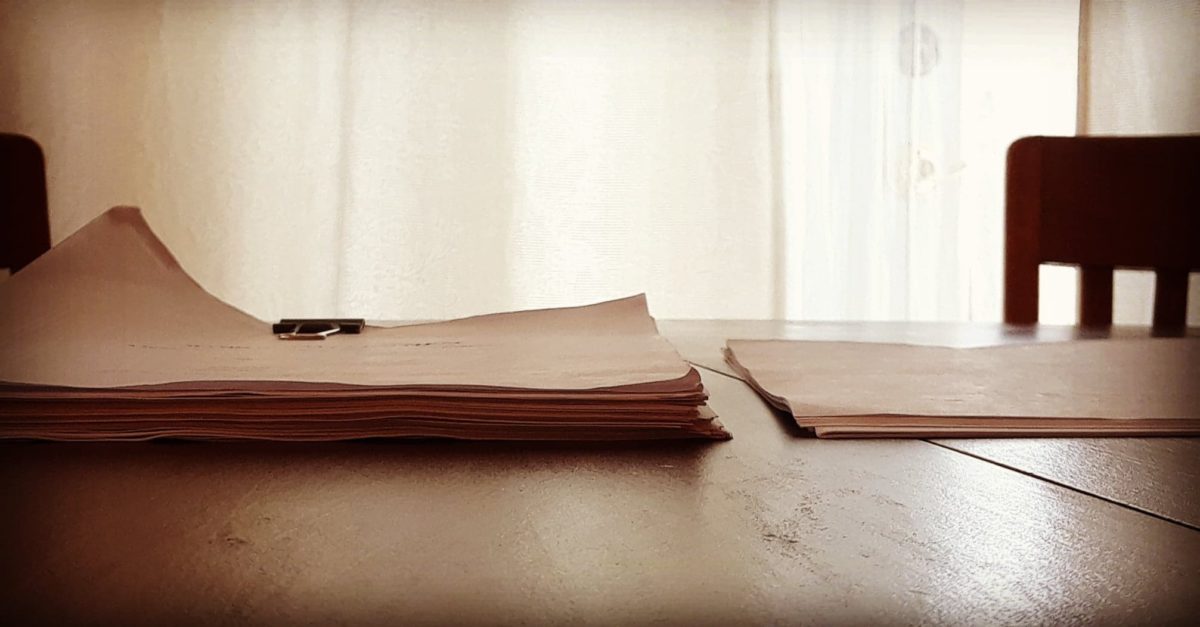A photo caught my eye yesterday as I was scrolling through Facebook—two gorgeous twelve-week notebook planners, a smaller one with a fine linen cover lying atop another, larger and more elegant, with a black leather cover. The woman who posted in a private group regretted the purchase of the smaller one—she was “hyperventilating with buyer’s remorse,” because of the “frustrating aesthetic” of the linen. As a female business owner in a male-dominated profession, she felt the sleek leather gave her legitimacy, helped her feel powerful when she walked into a meeting.
I was astonished.
During the fall quarter last year, I had used that linen covered flim-flam planner. The structure was useful, goal-setting and -tracking and whatnot, as I was navigating a return to grad school.
But then, pandemic.
From mid-March until June, I worked long hours in the garden. Making a garden is hard work. Maintaining a garden is… work. Rehabilitating a neglected garden—yikes. But I didn’t need a planner for that, only a running list of what I wanted to accomplish each week. I loved that my day was not packed with infinity things. And it was deeply satisfying to be able to see results, to effect change in my environment, and feel the day’s labor in my body.
What I learned during my gardening months:
- Control is easily achieved with chemicals, money, and machinery. See the cult of the American lawn.
- Chaos and disorder are achievable by disrupting and then neglecting the earth. Weeds will choke out desirable plants and all boundaries will be annihilated. That was my sitch in March.
- Controlled chaos, abundance of form and scent and texture, is the most challenging and, for me, the most desired. Getting there.
Controlled chaos, beauty, requires time and labor. Or the money to hire someone to labor for you. And there’s the rub. If you have the money, you likely won’t have the time to labor yourself.
I knew all the gardening freedom would come to an end, that the money would run out. The university continues to publicly pretend that we will reconvene in August, despite the rising number of COVID cases. So, presumably, I am still employed. But because everything was cancelled last spring, I did not earn the overtime that typically sustains me during the summer months.
So. My garden hiatus, my work-detox, is over. Less gardening, more strategizing. I reread information about the SMART planning model. I enrolled in and completed an online editing class. I took a Zoom workshop to learn how to spiff up my LinkedIn profile—which, let me tell you, is absolute shite. And, I fiddled with a daily schedule that would include blocks of time to do All The Things. You know, productivity planning.
Every day we see more articles about rethinking work in the age of plague. This article kept popping up in my social media feed with a clickbait suggestion of a shorter workday in our future. But only a few sentences at the end address that issue, and I continue to wonder about the history of the eight-hour day. How did that become the norm? Eight seems just enough to keep us, especially women, exhausted enough to have to pay for services, meals and lawn care, for instance, rather than cooking and gardening ourselves.
I have not eaten a restaurant meal since March 12. I will never be a foodie or a superior cook, but, surprise! I can feed myself. The lettuce hasn’t bolted yet, and we’ve enjoyed a garden salad every evening for months. I used to hate making salad. I used to hate making dinner. But the pandemic has normalized kitchen work to the point that it’s as natural and easy as brushing my teeth before bed. An unexpected side-effect.
At one point, as I was I brainstorm-typing an abundance of utter nonsense, I remembered a conversation I had with my friend Barbara. I had just discovered the flim-flam planner, and we were having a show-and-tell. Even as I enjoyed the beauty of the font, the scent of the pages, the quality of the paper, still, this nagging question…. Why? Why not just do the things?
This morning I glanced at my beautiful new quarterly notebook, which I’d filled with tasks for the day—including this, getting back to writing. And I had a wild thought, remembering that poor woman with buyer’s remorse. What if the point of productivity planners is to incentivize us to buy things to make us feel better about generating money for our employers?
Surely not.
[Photo by Ross Mulhausen. Six-week old Black Australorp hens, excellent birds, Mildred & Winifred.]



